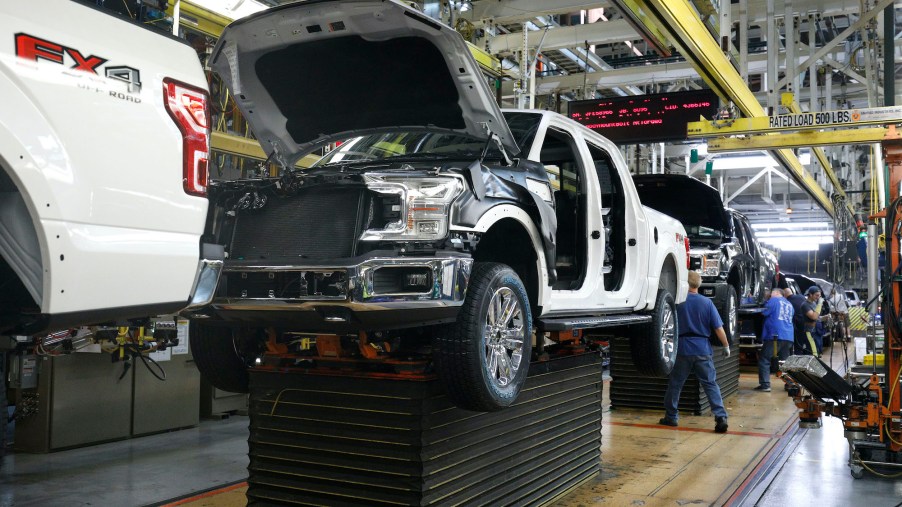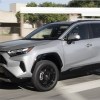
Ford F-150 Owners Are Suing Because of Fuel Economy
When it comes to trucks, Ford has given its fans a lot of reasons to love Ford trucks. The F-150 has been an American icon, and the recently revived Ranger is making a positive impact, too. That said, they aren’t perfect trucks, and unfortunately for Ford, owners are now suing over their truck’s fuel economy.
An overview of the Ford F-150 and the Ford Ranger
The Ford Ranger is a midsize truck while the Ford F-150 is a full-size truck, and as a result, they’re both geared for different things. Obviously, since the Ranger is a smaller truck, its size will give it advantages and disadvantages when compared to the F-150. For example, since the Ranger is smaller than the F-150, it’ll be able to tow less cargo and it’ll be able to carry less stuff in its truck bed.
But, due to its size, the Ranger is also cheaper than the F-150 is. The latest Ranger will start at about $24,000, while the latest F-150 will start at almost $29,000. On top of that, another advantage of the Ranger is that it’s also generally more fuel-efficient than the F-150 is. That said, due to how many engines Ford offers on the F-150 and the Ranger, the differences will vary based on the build of the truck.
Why Ford owners are suing the automaker
According to Car Complaints, a recent class-action lawsuit alleged that some of that may not be true. That lawsuit alleged that Ford sold its trucks while advertising the wrong MPG figures for those trucks. The lawsuit claimed that Ford manipulated the testing for its trucks so that they’d get improved MPG figures on their EPA tests.
The differences are significant too. Car Complaints wrote that a 2018 Ford F-150 that’s equipped with its V6 engine should get about 20 MPG in the city and 26 MPG on highways. However, the lawsuit claimed that the 2018 F-150 actually gets about 18 MPG in the city and 23 MPG on highways.
Assuming that a truck runs for 150,000 miles, Car Complaints said that this MPG difference is equal to hundreds of extra gallons of gas over the lifetime of the truck. Car Complaints wrote that if these claims are accurate, then the F-150 could use between 821 gallons to 968 gallons of extra gas throughout its lifetime depending on where the F-150 is being driven.
Gas prices will vary, but that’s a substantial amount of gas regardless. And, like the lawsuit said, this alleged difference in MPG figures will cost owners “thousands of dollars” when compared to what Ford advertised.
What the lawsuit also alleged
While the lawsuit alleged that Ford deceived owners about the fuel economies of its trucks, the lawsuit also made other allegations. For example, Car Complaints wrote that the lawsuit claimed that Ford “allegedly used inaccurate drag and resistance figures” when it was testing its cars. Additionally, the lawsuit also alleged that Ford miscalculated other factors that ultimately allowed its trucks to get a higher MPG.
Car Complaints said that the lawsuit also alleged that Ford used those higher MPG figures to market its trucks as being more fuel-efficient when compared to its competitors. Additionally, the lawsuit also claimed that thanks to those MPG figures, Ford was able to get more credits from the U.S. CAFE regulations, according to Car Complaints.
That said, not all Ford F-150s and Rangers are allegedly affected by these claims. Car Complaints said that over a million Ford trucks in total may be affected by this, but only Rangers from 2019 to 2020 and F-150 models from 2018 to 2020 are affected by this.



